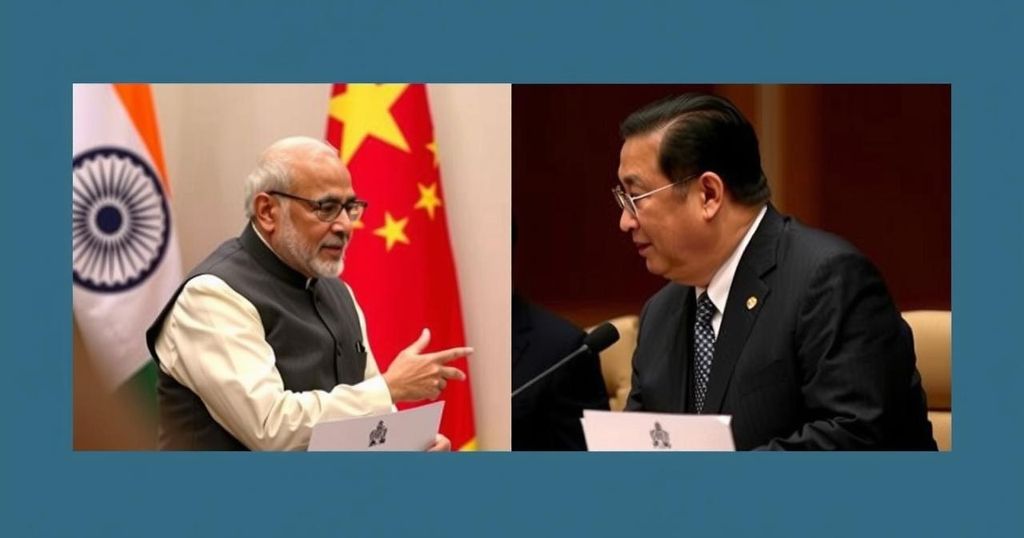Ajit Doval meets Wang Yi in Beijing to revive India-China relations after four years of military tensions at the LAC. The talks aim to restore peace and discuss an agreement on disengagement and patrolling in eastern Ladakh, following significant recent diplomatic exchanges.
On Wednesday, National Security Advisor Ajit Doval and Chinese Foreign Minister Wang Yi convened in Beijing as the Special Representatives for India and China’s border mechanism. This meeting marks a significant turnaround after a four-year hiatus caused by military tensions in eastern Ladakh. Initiated following an agreement on October 21 regarding disengagement and patrolling in the region, the discussions aim to restore bilateral relations and ensure peace along the Line of Actual Control (LAC).
Mr. Doval’s delegation arrived a day prior, with pivotal talks commencing at 10 AM local time. The objective is to address longstanding issues and facilitate a constructive dialogue following a recent meeting between Prime Minister Narendra Modi and President Xi Jinping during the BRICS summit. China has expressed its willingness to cooperate with India to reaffirm commitments made during their leaders’ encounter regarding mutual respect and proper resolution of disputes.
The External Affairs Ministry indicated that both representatives would engage in dialogue about maintaining tranquility at the border and seeking equitable solutions to the boundary issues, as previously discussed by the national leaders. Following a deadly clash in Galwan Valley in June 2020, relations had soured significantly, except for trade, leading to a comprehensive standstill until recent developments.
The formation of the Special Representatives mechanism in 2003 denotes a committed effort from both nations to resolve the complex border dispute encompassing 3,488 kilometers. Despite the challenges faced, this structure is regarded as a beneficial tool for managing ongoing tensions and fostering a cooperative approach between India and China.
The military standoff between India and China at the Line of Actual Control began in May 2020 and intensified following violent confrontations, notably the clash in Galwan Valley. These events severely disrupted diplomatic ties between the two nations, halting various forms of engagement except for trade. In response to recent discussions between the leaders of both countries, the Special Representatives’ talks represent a crucial attempt to mend relations and establish a framework for future dialogue regarding border management and mutual interests.
The recent talks between Ajit Doval and Wang Yi signify a hopeful step toward restoring peace and cooperation between India and China. With the implementation of prior agreements and a shared commitment to dialogue, both nations aspire to rebuild their relationship and effectively address their longstanding border disputes. Continuous engagement through structured mechanisms such as these may serve to facilitate a significant reduction in tensions in the region.
Original Source: www.ndtv.com






